With the largest economy in Africa and the 29th largest economy in the world, Nigeria is fast becoming a top African destination for tourism.
Despite its growth, the country still showcases a proud cultural heritage, both in daily life and in preserving historical artefacts, some dating back to 500 BCE.
Here are a few must-know facts about Nigeria:
Currency: Naira (NGN)
Official Languages: English, Hausa, Igbo, Yoruba, Fula
Capital: Abuja
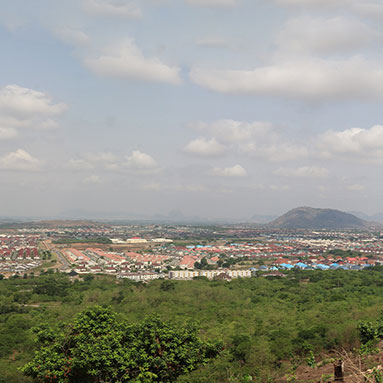
Abuja is located in the heart of Nigeria and was built during the 1980s to be the new capital. It replaced Lagos as the capital in 1991 in an effort by the government to bring economic development into the centre of the country.
Currently, Abuja has a population of approximately 1 million people, with some parts of the city growing at up to 30% yearly.
The city is home to some of Nigeria's most beautiful architecture, including the golden-domed National Mosque, the pink Federal Secretariat Complex, and the angular Nigerian National Christian Centre.
Lagos may no longer be the capital city, but, according to the Lagos State Government, it remains the largest city by population, with over an estimated 21 million residents and the biggest attraction for tourists.
Visiting either of these cities will leave you with a feeling of wonder at the sheer magnitude of their growth, the vibrant energy, and the friendly attitude of the locals. Stop in at the bustling Lekki Market in Lagos to see just how creative and colourful the country and its people are, and make sure to visit the Nike Art Gallery, an astonishing 5-storey exhibition of local Lagos artist Nike Okundaye's contemporary and traditional arts.
Nigeria's history can be traced back to the Nok civilisation which occupied the Northern Nigerian region from around 500 BCE. This civilisation produced spectacular, life-sized terracotta figures that were among the earliest sculptures found in Sub-Saharan Africa.
In the 10th century, the Kingdom of Nri was established. This kingdom lasted until 1911, when the area came under British colonial rule until 1960, when Nigeria gained independence. Queen Elizabeth II remained as the nominal head of state until 1963.
The country endured a civil war and various military coups between 1967 and 1999, when it regained democracy, electing Olusegun Obasanjo as president.
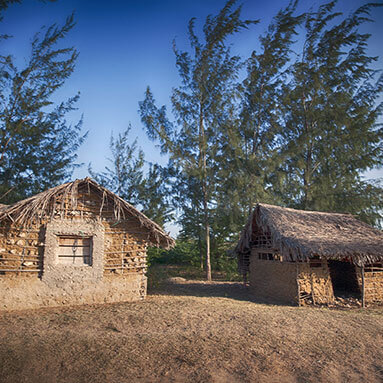
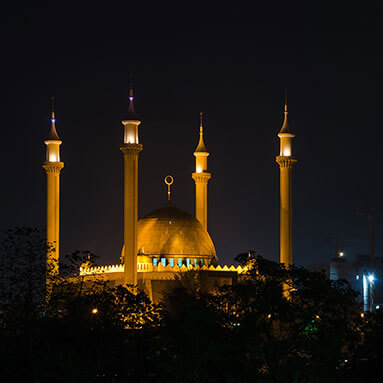
Nigeria is home to many marvellous artistic, cultural, religious, and natural wonders:
1. Osun Sacred Grove is a forest believed to be home to the Yoruba goddess of fertility, Osun. Located on the outskirts of Osogbo, this little corner of the world serves as a gallery for the stunning sculptures created by Nigerian-Austrian painter and sculptor, Suzanne Wenger, who led a movement to protect the area from metropolitan expansion.
Tip: If you plan to visit the grove, hire a travel guide, as the forest is home to several dangerous creatures, such as snakes and spiders.
2. A visit to Terra Kulture in Lagos, an arts centre and restaurant, is a must. The restaurant specialises in serving Nigerian cuisine and the cultural centre exhibits the work of local artists and offers language classes for Hausa, Ibo, and Yoruba.
Tip: The Terra Kulture centre hosts various events, such as book readings, art auctions, and dinners. If you wish to attend one of these, visit terraculture.com to find an interesting event while you're in Lagos.
3. Around the corner from Terra Kulture is Lekki Conservation Centre, a large wetlands nature park. Here, you'll find a 401-metre suspension bridge, picnic facilities, and bird hides.
Tip: Visit in the morning as this is when the wildlife is likely to be most active, according to experts.
4. The Lekki Market is a vibrant hotspot filled with unique arts and crafts, delicious traditional foods, and clothing that you can have custom-made from authentic local fabrics.
5. The historical monument, Olumo Rock in Abeokuta (an hour or so outside of Lagos), is a natural rock outcrop that served as a defensive hideout for the Egba people during inter-tribal wars in the 19th century. You can either climb the man-made stairs to the top or take an elevator. Once there, you'll have a view of numerous other attractions like the River Ogu and the First Church of Nigeria.
6. Another Lagos attraction is Kalakuta Republic Museum, the home of the late Nigerian musician, Fela Kuti. There, you will find Kuti's grave, his bedroom just as he left it, and some of his personal effects, like photographs and album covers.
With the country becoming a popular travel destination for many in Africa and abroad, accommodation options have increased tremendously. Victoria Island is an important zone in Lagos. Many corporate headquarters are situated there, and it is also the heart of the city's entertainment and nightlife scene. Many people who visit Lagos choose to stay on Victoria Island. There is a wide range of accommodation choices ranging from affordable to high-end, with both international chain hotels and locally owned hotels available.
Compare the various hotels and accommodations available in the country and see which offers the best creature comforts in relation to affordability and availability.
Tip: When planning your trip, book your accommodation in advance and look for hosts with multiple good reviews.
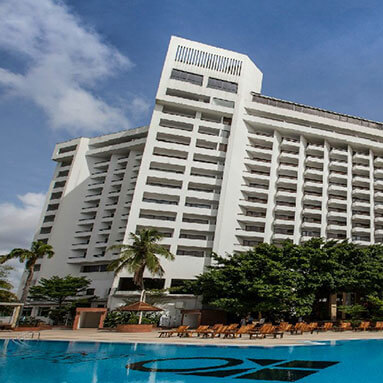
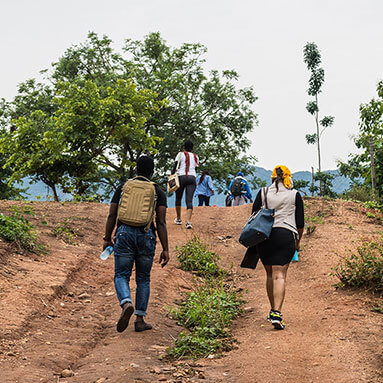
Hiking is a popular attraction in Nigeria due to the vast mountain ranges and highlands in the country; the Dawaki Hills in Abuja, Holy Mountain in Calabar, and Mount Patti in Lokoja entice many hikers annually.
For water enthusiasts, Kayaking is an adventure growing in popularity as more places offer a chance to paddle along rivers that flow through both the countryside and cities. After kayaking, relax in the Wikki Warm Springs situated in Yankari National Park in Bauchi.
Lagos also offers scuba diving experiences and surfers can catch great waves in Tarkwa Bay.
Getting back to dry land, jump away your day at Upbeat, West Africa's first ever trampoline park in Lekki. This giant facility houses hundreds of trampolines where you can perform daring wall climbs, play trampoline dodge ball, or get an aerobic workout.
If you love to party, Nigeria, and specifically Lagos, is where it's at.. Locals frequently make trips to the party capital to enjoy live music, DJs, and even salsa dancing.
Nigeria's various ethnic groups offer amazingly rich cuisines, from tropical coconut dishes to meats infused with spices and herbs. Most Nigerian dishes are colourful and aromatic, ensuring a distinctive taste each time.
Among the many traditional foods is iyan, a mashed yam dish similar to mashed potatoes. Yam is a popular ingredient in many dishes like àmàlà, a yam paste, and asaro, a yam porridge mashed in tomatoes, chili, and peppers.
Nigeria also offers its unique twist on drinks with kunu, made from millet, palm wine, created from the sap of palm trees, and soya bean milk, made from soaked and ground soya beans.
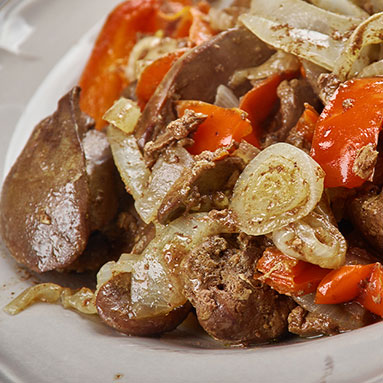
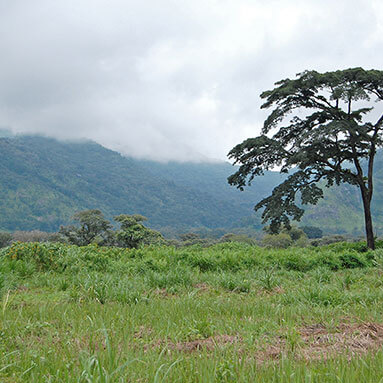
Nigeria's climate is defined by its dry and wet seasons.
The wet season occurs mainly between April and October. Rainfall varies between regions, with the southern coast prone to heavier rainfall than anywhere else.
The dry season can see temperatures soar to 38°C and drop below 20°C at night. Harmattan, a wind that blows from the Sahara across West Africa from November to March, carries fine desert sand, which can be unpleasant if you're not used to it, so take this into account when booking a trip to Nigeria.
Nigeria has a large network of organised crime involving bank fraud, partially due to economic and political instability in the country's recent history.
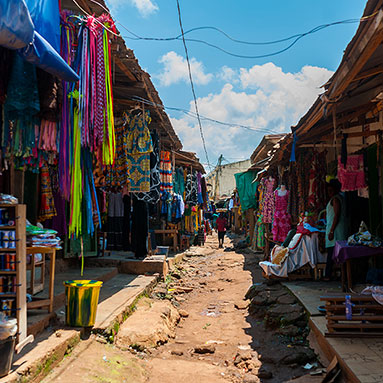
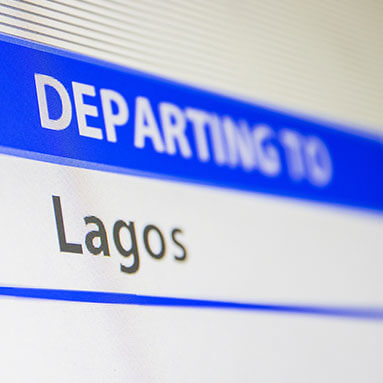
Nigeria is accessible by car, plane, or boat, and South Africans require a tourist visa when visiting the country.
Listed here are the various ways you can enter and travel around Nigeria:
Nigeria has 31 airports, five of which are international, scattered across the country.
Murtala Muhammed International Airport and Nnamdi Azikiwe International Airport are the busiest ones, situated in Lagos and Abuja respectively.
Driving to Nigeria from South Africa is not a practical way to get there, but if you are planning to drive around the country during your stay, there are several car rental agencies in the metros offering good deals.
Public transport in Nigeria is quite extensive but can be confusing in the beginning. The most popular and affordable modes of transport are taxis and buses, which dominate the roads. There are also traditional cabs and Ubers available.
Nigeria is a popular destination for cruise ships sailing around West Africa, along with Ghana and Cape Verde.
1. It is customary to take gifts to your host when visiting the country. These can vary from clothes to nuts and chocolates.
2. Nigerians are crazy about sport, taking pride in their national football team. Their success in the 2010 FIFA World Cup when they reached the quarter finals united the nation and the continent.
3. You'll need a yellow fever vaccination before you'll be allowed to enter the country. Nigeria is also a malaria area, so speak to your doctor about taking anti-malaria medication before you depart.
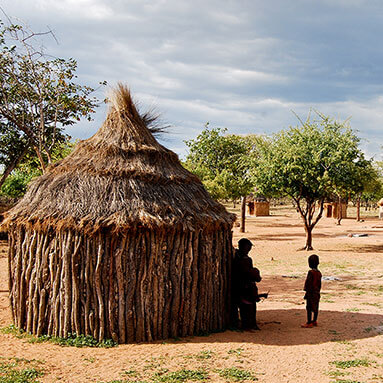
Prices quoted are correct at the time of publishing this article. The information in this article is provided for the informational purposes only and should not be construed as financial, legal, or medical advice.
Sources: Wikipedia, US Department of States Report, LonelyPlanet, WikiTravel, Nations Encyclopedia; New World Encyclopedia; My Guide Nigeria; Come to Nigeria.